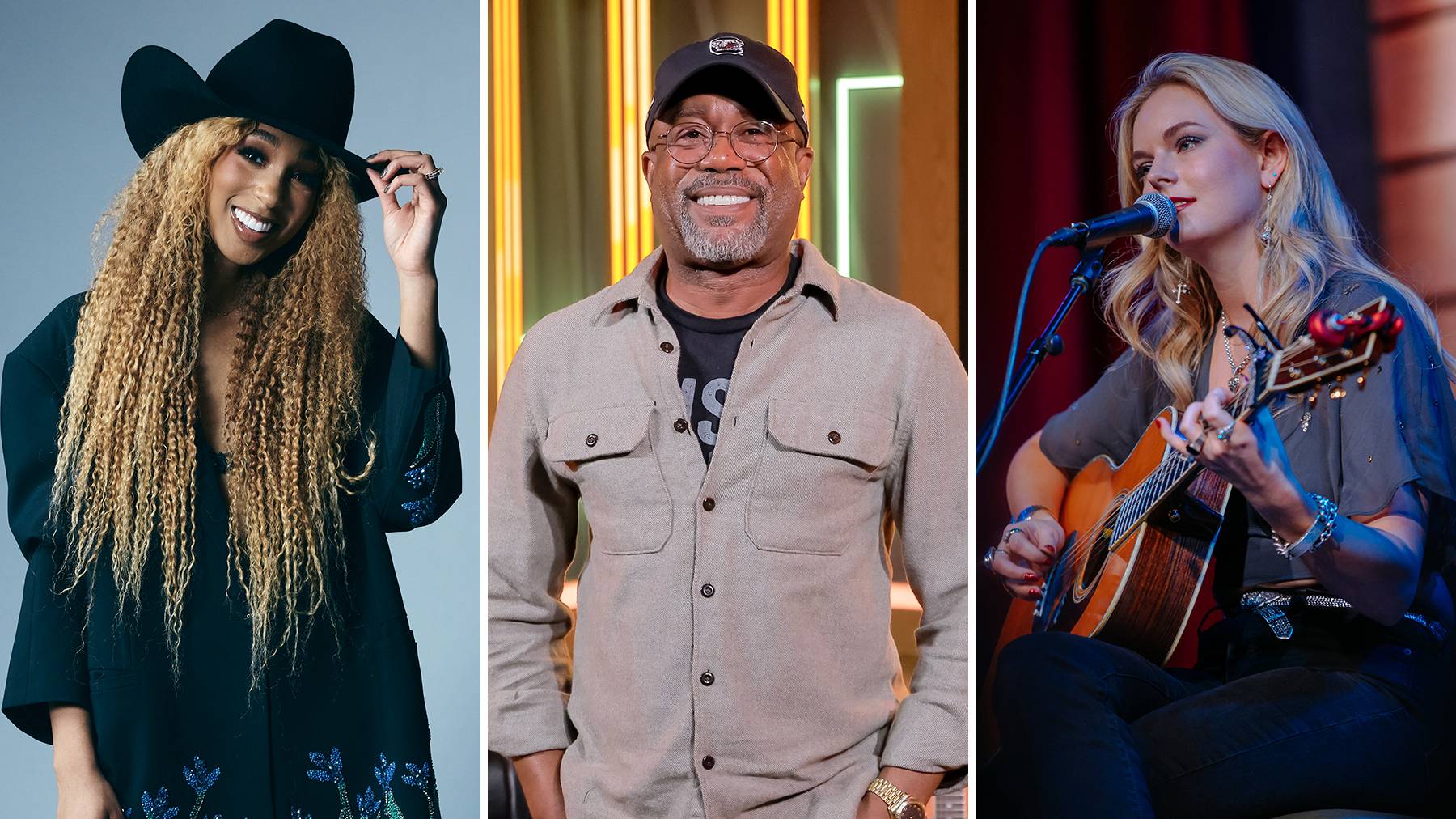David Lee Roth Jumps for Bluegrass Album

"Who doesn't like the sound of a mandolin?" David Lee Roth says. "Who doesn't like a well-played acoustic guitar?"
At the moment, the bigger question may center around how many people will like the sound of a mandolin and a well-played acoustic guitar on bluegrass versions of Van Halen songs. That's the entire point of the new CD, Strummin' With the Devil: The Southern Side of Van Halen.
Backed by a bluegrass band led by multi-instrumentalist John Jorgenson, the singer known as Diamond Dave recorded new versions of two Van Halen classics -- "Jump" and "Jamie's Cryin'" -- for the CD released by CMH Records. Other tracks include the "Runnin' With the Devil" by the John Cowan Band, "Dance the Night Away" by Mountain Heart, "Hot for Teacher" by David Grisman and Sons, "Could This Be Magic?" by the Nashville Bluegrass Band and "I'll Wait" by Blue Highway.
Roth, who was Van Halen's lead vocalist until 1985, has a well-earned reputation as one of the most flamboyant performers in the history of rock music. But who could predict he would show up several minutes early for a 10 a.m. interview at CMT.com's office in Nashville? At age 50, he still clearly possesses the attitude of a rock star, but he comes across as a charming, genial show business veteran who takes great pride in his professionalism.
Roth's venture into bluegrass music may appear to be an artistic stretch, but he's also the guy who had a major solo hit in 1985 by channeling the spirit of the late New Orleans/Las Vegas entertainer Louis Prima on a medley of "Just a Gigolo" and "I Ain't Got Nobody." Recalling the success, Roth says, "You can tell how good you're doing by the size of your detractors. They swore critical and career suicide. I said, 'No, this voices the attitude of rock.'"
Born in Indiana, Roth was a child when he began spending his summers with his uncle, Manny Roth, who owned the Café Wha? nightclub in New York's Greenwich Village. Recalling the club in the early '60s, Roth says, "It was only acoustic music. Several things were convergent at the time. You had folk music -- the New Christie Minstrels, etc. You had whole lot of world music -- steel drummers and sitar players. Then you had psychedelia. Rock was very much coming into play in the shape of the great blues revival of the '60s."
Roth says his songwriting was influenced by what he heard at the club and by AM radio of the '60s.
"It had to be a song format: verse, chorus, verse, chorus, scream, solo," he says. "I grew up with that. It was part of my musical constitution, particularly in Indiana. The only thing you're ever going to hear in the hardware store or garage radio is that kind of music."
The song structure of Van Halen's material lends itself to a wide variety of interpretations, including bluegrass, Roth suggests.
"It's classic Americana songwriting," he says. "That's the way my verses and titles are set up. 'You might as well jump.' Doesn't that sound like Bob Wills to you?"
Noting that the bluegrass album was his idea, Roth says, "My thought was what would be a great way to do a Van Halen tribute album. To have other [rock musicians] do it? Predictable. To just play it on acoustic guitars the way it is already on the record? Double predictable? Just to ferret it out to all different kinds of musicians? Been there, done that."
In revamping the music, Roth says, "If the material is already familiar, when you change the medium -- hopefully, if you do it right -- then you not only take the music past where you found it, but you begin to find out things about the music that you didn't know before." Key to the project was to avoid making fun of Van Halen and/or bluegrass music. "The humor is innate in this music," he says. "The temptation is to have a little too much 'yuk yuk' with it."
Roth has always surrounded himself with great musicians, including his post-Van Halen band that featured guitarist Steve Vai and bassist Billy Sheehan. For his contributions to the bluegrass album, Roth was drawn to the musical arrangements and performances on the demos submitted by Jorgenson, a founding member of the Desert Rose Band and the Hellecasters, who has worked with Bonnie Raitt, Willie Nelson, Mary Chapin Carpenter, Elton John, Lyle Lovett and Trisha Yearwood, among others.
"You want to compel yourself," Roth says. "It's a mutual inspiration and infuriation kind of society. It's why we went with the fellows we did on Strummin' With the Devil. We don't use any microphones, any amps or any drums. You are compelled to not just get it right, but to excel. You also sort of surround yourself with people who shine in the light in which you see yourself."
However, having recorded his vocals to the tracks Jorgenson provided, Roth never actually met any of the bluegrass musicians until a recent trip to Nashville to prepare for a series of television appearances. He jokes, "I started our rehearsal off by saying, 'Gentlemen, your uncanny abilities combined with my Christ-like humility is how we will accomplish greatness. Now, somebody count to four.'"
In recent interviews, Roth has hinted that a Van Halen reunion could be in the works.
"It ain't rocket surgery," he says. "I mean, I can sing 'Dance the Night Away' in Español for you right now."
Referring to guitarist Edward Van Halen as a "tortured soul," Roth says, "He's gone hermit on us. I reach out to the guys at least once a year and say, 'Come on, we don't have to love each other.' ... I'm hoping that what's wrong with Eddie is not as wrong as it is with Axl Rose or the guy in the Beach Boys ... that the malaise turns into Jupiter or something."
When it's pointed out that the guitarist underwent treatment for lung cancer several years ago, Roth replies, "But they cured that up. He's vertical, so hope springs eternal."
In April, Roth made national news when CBS Radio fired him just three months after he replaced Howard Stern's morning radio show in New York and six other cities.
"I think I've been voted most likely to be a diversion," he says. "Anybody who's gonna follow Howard is gonna take a beating. So what they needed was somebody with a great sense of humor and a real thick skin. They also needed somebody who could attract attention and kill a little time while they completed their contract with [air personalities] Opie & Anthony. I knew something was up when we didn't get any guests for the first two weeks -- courtesy of my program director."
Roth has hired Stern's attorney, Peter Parcher, in an effort to be paid the remaining salary of what was reported to be a $4-million contract.
"But you know what?" Roth says. "I never had a vision that you were going to see me as a disc jockey or that you were going to see me as a cowboy. But one day, somebody is going to look on the TV and say, 'Hey, I saw Dave Roth wearing a cowboy hat. Wanna go to his show next week?' That's how I make a living. 'Hey, I saw Dave Roth dressed up like an astronaut. He's not really an astronaut, but he's playing next week, you know.' And that's what I do."





